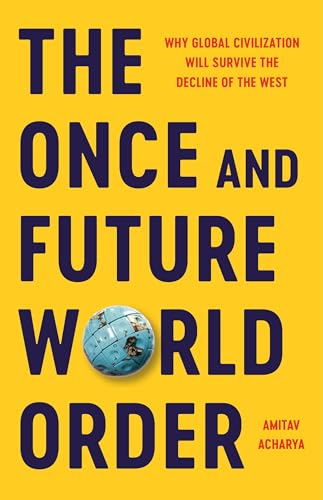What do you think?
Rate this book


464 pages, Hardcover
Published April 8, 2025

"...They’re coming from scholars, policy research institutes, journalists, and commentators, and they stem from two convictions: One is that the present world order, led by the United States and the West, has by and large been a good thing, preventing major wars and allowing for international trade, economic growth, and a remarkably stable and prosperous international system. Two is that the rise of the non-Western nations and the emergence of an alternative to the familiar American-led world order will be frightening, unpredictable, and almost surely a change for the worse. For the West at least, the Russian invasion of Ukraine in February 2022 was a stark warning about the dangers of the breakdown of the American-led world order and its replacement with a kind of Putinesque law of the jungle, a breakdown aided and abetted by an ever more powerful China."
"Would the end of US and Western dominance really be so bad?
In this book, I argue, contrary to much elite opinion, that it need not be, especially over the long run. This is not because the West’s fears about the rise of non-Western powers, including China and Russia, are always exaggerated, although sometimes they are, due to the loss of power and prestige. But it is because Western supremacy has itself contributed to plenty of instability, injustice, and disorder that might be eased by its decline. More importantly, centuries of dominance have led the West to a kind of arrogance and ignorance about the rest of the world, overlooking the ideas and contributions of other civilizations to stability and progress throughout history. We have forgotten that world order—the political architecture enabling cooperation and peace among nations—existed long before the rise of the West, and that many of the ideas we assume are Western inventions actually originated in other civilizations. Mechanisms and values that are central to world order—such as diplomacy, economic interdependence, freedom of seas, principles for the protection of people in war and peace, preservation of the environment, and cooperation among major powers, to name a few—emerged over millennia across the globe."